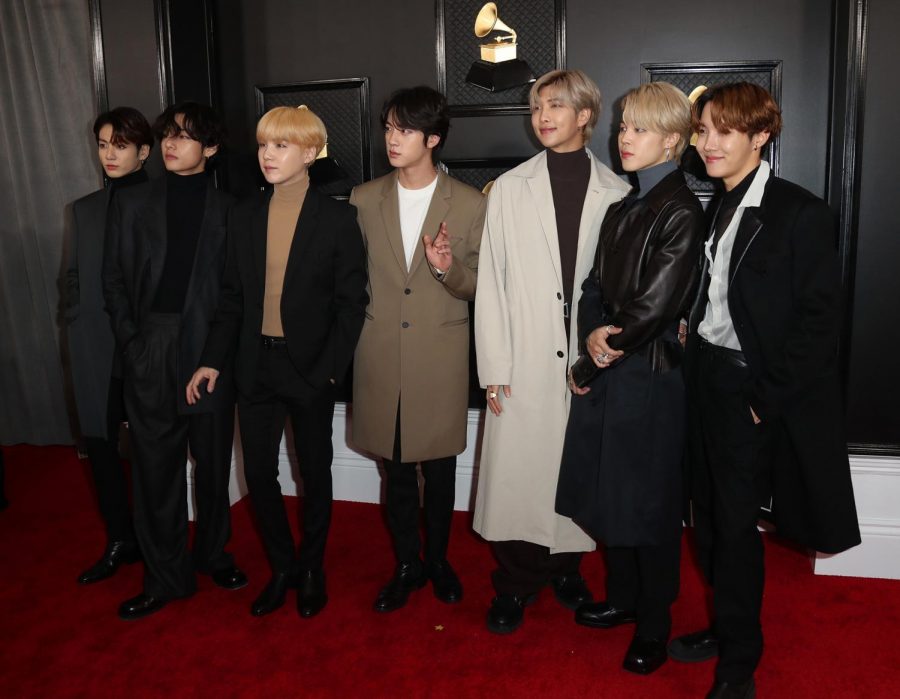Expanding My Universe
Korean pop experiences rise in popularity in America
BTS arrives for the 62nd Grammy Awards at Staples Center in Los Angeles on Sunday, Jan. 26, 2020. (Allen J. Schaben/Los Angeles Times/TNS)
November 22, 2021
Red light! Green light! These words, in my experience, always follow a herd of children racing to be the first to get to the person saying them. They often associate with elementary school P.E or during recess. I’m sure many of you also know these words from the famous childhood game “red light, green light” but recently it has found a new meaning through the famous Netflix show, “Squid Game.” “Squid Game’’ is a thriller series where people who are struggling financially join a sequence of children’s games turned violent to play for a large sum of money. As the people die from the games the stakes get higher and so does the value of the prize money. “Squid game” is currently Netflix’s number one show in the United States as well as in the top ten in 94 other countries around the world. It is the first ever Korean show to be number one on Netflix.
“Squid Game” isn’t the only popular evidence of widespread Korean pop culture in America. K-pop music has had a surge in the past 20 years with groups such as EXO, BlackPink, BigBang and Girls’ Generation. However, the most popular, famous seven Bangtan Boys, better known as BTS, have been popular in America for the past 10 years or so. With their most recent song “My Universe,” they reached their sixth number one hit song on the Billboard chart since September 2020 when “Dynamite” was released. This is an incredible rate in terms of reaching the time. “My Universe” is actually a collaboration with Coldplay.
BTS has expressed concern about releasing another song in English. They have actually incorporated Korean verses into the song at multiple points. They have also written many other songs in both English and Korean.
The rise in Korean culture popularity in America is thought to be because of Korea’s rise in strength in the economy. According to the Korean-American Accomplishment Network Website, “The economic strength of a nation is directly proportional to the ability of the nation to propagate its culture. With the help of movies and TV series, Korean culture has spread throughout the United States and the rest of the world, since watching TV affects the perception through which an individual looks at the world.” The website refers to the gain in popularity as “Hallyu” or “the Korean Wave”.
Korean culture has been prominent in the United States and continues to inspire new culture in the world. Sophomore Sophia Kim reminds us of the negative side of the increasing popularity.
“I think it’s cool sometimes,” Kim says. “But sometimes people will turn it into cultural appropriation, which is not great.”
There is a balance between appreciating the culture and generalizing all of Korean culture into one is a challenge. One should keep in mind not to associate all of Korean culture with a single individual as many may not follow the same traditions. This is a recurring challenge in our country for multiple cultures from many different countries and regions.


